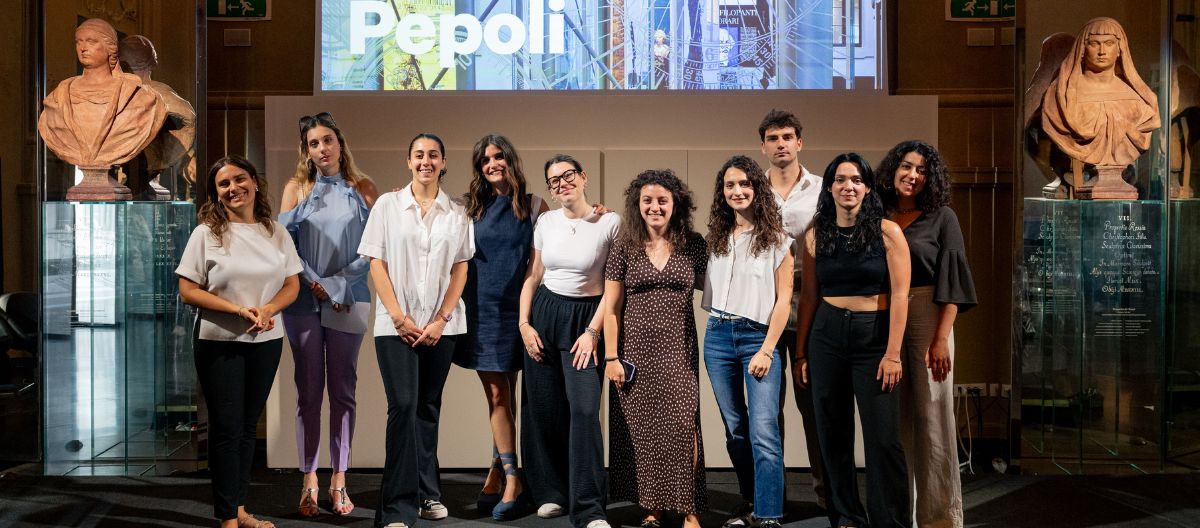
Two paths, one vision: tourism and digital communication meet urban innovation
4 July 2025Participants of the Master in Business Management – Tourism, Heritage and Events and the Master in Digital Marketing and Communication took part in a joint field experience to observe new approaches to hospitality, community engagement, and urban transformation. Two stops, two complementary perspectives, one shared opportunity to learn directly from key players in change.
The Social Hub: where hospitality, coworking and networking converge
The first stop brought participants to The Social Hub, in the heart of Bologna. Guided by Martina Nesti, Regional Marketing and Community Management Italy, the groups explored a place where hotel hospitality, shared workspaces, student services, and youth entrepreneurship coexist within a dynamic ecosystem.
During the visit, they were introduced to the brand’s history and values, its locations across Europe, and its hybrid model, which combines rooms, a cinema, a swimming pool, a bar, communal areas, and a coworking space animated by innovative startups. A true immersion into a contemporary vision of hospitality, where welcoming, experience design, and social innovation come together.
As Evgenia Monogiou, participant in the Master in Business Management – Tourism, Heritage and Events, shared: “What stood out to me was the passion of the team and their strong focus on building a connected community. I was impressed by how they integrate hospitality with coworking spaces, networking events, and amenities that attract both travelers, locals, workers, and students. Seeing companies operating fully within the building gave me a real sense of how vibrant and functional the community is. It felt like a real living ecosystem!”
Palazzo Pepoli and Bologna Welcome: designing the future of tourism
The second stop involved participants of the Master in Business Management – Tourism, Heritage and Events in presenting their project work developed in collaboration with Bologna Welcome, as part of the “Bologna Tomorrow” program. The groups focused on two of the six strategic labs proposed by the organization: the DMOcracy Lab, dedicated to regenerative tourism, and Museums in Transition, centered on the evolution of the museum experience.
Reflecting on the challenge, Evgenia remarked: “What struck me the most was the complexity of the challenge. We had to deeply research the area – its history, community, and dynamics – to create something meaningful. It wasn’t just about proposing an event, but about designing an experience that could engage locals, respect the neighborhood, support tourism, and contribute to the area’s long-term development.”
Following the presentations, the projects were discussed in an open debrief with Patrick Romano, General Director of Bologna Welcome, and Dr. Teolato, who offered valuable and constructive feedback. The day concluded with the opportunity to visit Palazzo Pepoli, a landmark of Bologna’s cultural heritage.
Training changemakers for an evolving industry
Experiences like these reflect the core of the Bologna Business School approach: transforming knowledge into opportunity, integrating theory and practice, and creating learning experiences that help interpret the present to shape the future. “These experiences showed me that tourism today goes far beyond sightseeing or learning about history and culture,” concluded Evgenia. “The innovation of The Social Hub and its community-driven model made me realize that meaningful interaction with locals is now a key part of tourism. The Bologna Welcome project also helped me understand how events and festivals are powerful tools to connect people, enhance emotions, and create unforgettable experiences. Today, I believe people are really searching for this kind of human connection – and travel is one of the most impactful ways to make that happen.”
She also highlighted the academic preparation that supported her approach to the fieldwork: “Tourism classes were especially important because they showed me how everything is connected to real-life contexts. Working closely with professors helped me sharpen the practical side of event planning – transforming ideas into structured projects, planning timelines, analyzing budgets, and proposing sponsorships. This process reinforced the kind of strategic thinking I had seen in real-world projects and prepared me to approach them with creativity and professionalism.”
